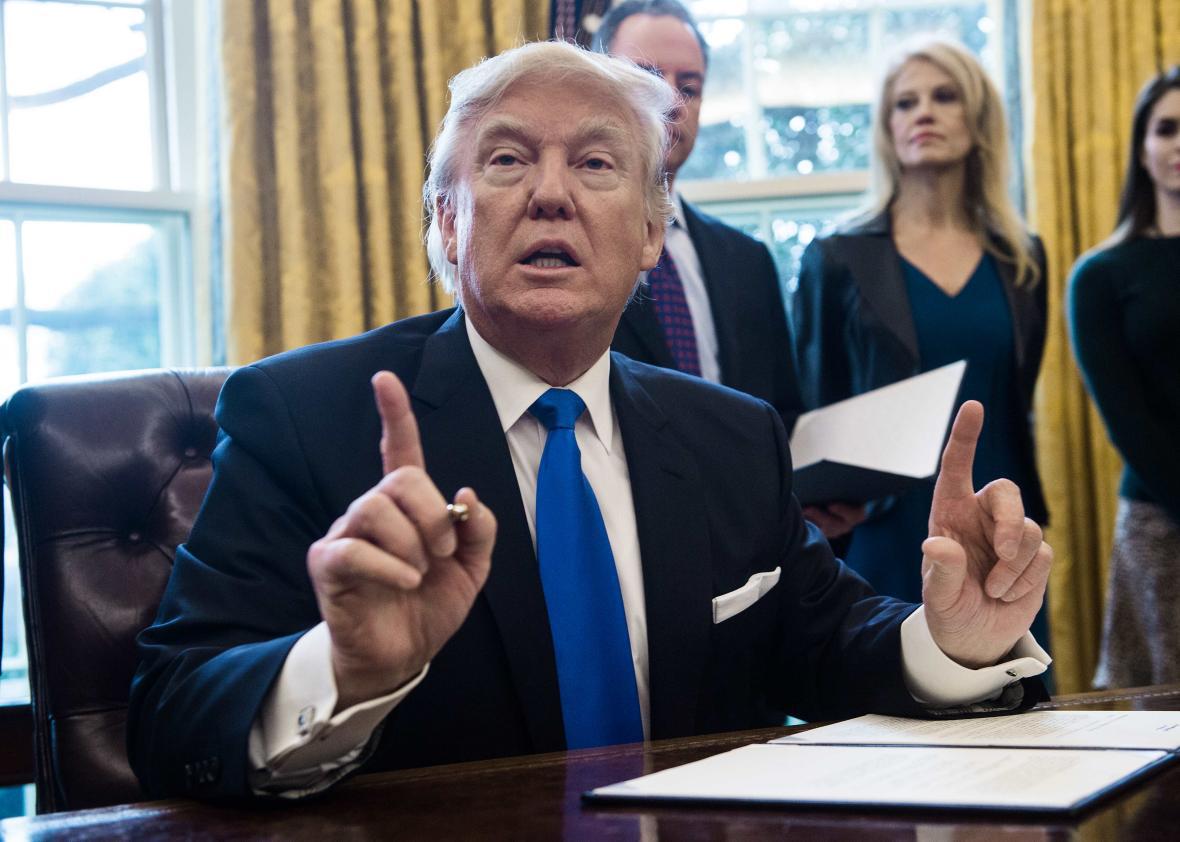On Saturday night, U.S. District Judge Ann M. Donnelly blocked a significant portion of Donald Trump’s immigration ban from taking effect. Trump’s executive order, which targeted Muslim refugees from seven Muslim-majority countries, purported to take effect immediately—trapping thousands of people in legal limbo. Immigrants traveling to the United States on lawful visas were detained at airports across the country, and those attempting to fly to America were refused entry on their flights.
The ACLU filed a lawsuit Saturday morning on behalf of two Iraqi refugees detained at JFK International Airport and “others similarly situated”—the many lawful immigrants who had just arrived in the U.S. on a valid visa or were then en route—alleging a constitutional violation. Donnelly ruled in their favor, issuing a nationwide stay. Her order forbids the government from deporting lawful immigrants who arrived after the ban was issued. Its immediate effect should be the release of any immigrants currently being detained at airports and allowing entry to those who left for America before the order was signed, as the government is no longer able to legally deport them.
Donnelly’s order held that Trump’s ban very likely violated the Due Process Clause of the Fifth Amendment. That bedrock constitutional principle forbids the government from depriving individuals of liberty arbitrarily and without a fair hearing. Yet this discriminatory capriciousness was the essence of the ban. In accordance with Trump’s executive order, Customs and Border Protection agents detained immigrants—without judicial approval—whose only crime was their national origin, then threatened to deport them. This capricious denial of liberty without basic due process clearly ran afoul of the Fifth Amendment. Donnelly also suggested that the ban’s targeting of individuals on the basis of national origin and religion probably violated the equal protection component of the Due Process Clause.
Much of Trump’s order remains in force. Immigrants and even green-card holders from those seven Muslim-majority countries are still generally prohibited from entering the U.S. The ACLU and other legal groups will challenge the remainder of the ban in due time. But for now, they have won relief for a number of immigrants—and scored the first legal victory against President Donald Trump.
*Update, Jan. 28, 2017: U.S. District Judge Leonie M. Brinkema has also issued an order requiring the government to let the dozens of lawful permanent residents being detained at Virginia’s Washington Dulles International Airport speak to attorneys. Her order bars the deportation of those held at Dulles for at least one week.
